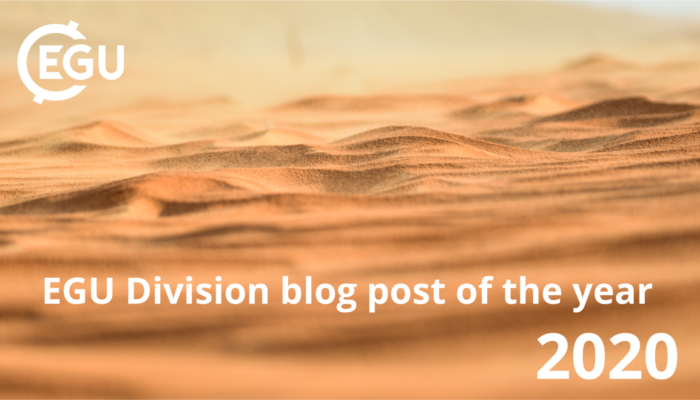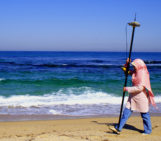
The past 12 months have seen an impressive 540 posts published across the EGU’s official blog, GeoLog, as well as the network and division blogs.
The EGU Division bloggers in particular have been hard at work producing new informative, fun and interesting blog posts for our members both inside their Division, but also across EGU as a whole! Ocean Sciences Division joined the EGU blogging family – and many of the blogs experimented with new things like writing collaborative posts to highlight the interdisciplinary nature of their work. The Division’s outreach teams also expanded – with many blog teams bringing in new writers and editors, as well as people to help manage social media. If you are interested in getting involved too, get in touch with your Division blog editors, or email communications@egu.eu.
EGU Best Blog Post of 2020 Competition
To celebrate the excellent display of science writing across the network and division blogs, we are launching this year’s EGU blogs competition!
We’ve asked our blog editors to put forth their favourite post of the year in the running to be crowned the best of the EGU blogs. From now until Wednesday 27th January 2021, we invite you, the EGU Blogs readers, to vote for your favourite post of 2020. Take a look at the poll below with the shortlisted posts, click on the titles to read each post in full, and cast your vote for the one you think deserves the accolade of best post of 2020. The post with the most votes by will be crowned the winner of the public vote. EGU blog editors and staff will also choose their favourites; the post with the most votes from this group will be deemed the winner of the panel vote.
Shortlist:
- 100 years of Marie Tharp – The woman who mapped the ocean floor and laid the foundations of modern geology (TS)
- An interview with Jean Holloway on the importance of mental health in graduate school (CR)
- Atmospheric research in the middle of the Amazon forest: The Amazon Tall Tower Observatory celebrates its anniversary (AS)
- #Black In Geoscience (GD)
- #Black in Soil Science (SSS)
- Climate models and Bach’s unfinished fugue (CL)
- DE BELLO VULCANICO 40-year scientific effort of ‘predicting the unpredictable’ since the 1980 eruption of Mount Saint Helens (NH)
- How Climate Sciences can help in understanding uncertainties in Covid-19 epidemic projections (NP)
- Hydrological modelling and pizza making: why doesn’t mine look like the one in the picture? (HS)
- The Challenges of Being LGBTQIA+ in Earth Sciences (GMPV)
- What’s it like to be black in academia? (SM)
Get involved
Are you a budding science writer, or want to try your hand at science communication? All the EGU blogs, from GeoLog (the official EGU blog), through to the network and division blogs, welcome guest contributions from scientists, students and professionals in the Earth, planetary and space sciences.
It couldn’t be easier to get involved. Decide what you’d like to write about, find the blog that is the best fit for your post and contact the blog editor – you can find all editor details on the individual blog pages. If in doubt, you can submit your idea for a post via the Submit a Post page on GeoLog, or email the EGU Communications Officer, who can help with initial enquiries and introduce you to individual blog editors.
Don’t forget to a look at the blog pages for a flavour of the content you can expect from the new, and existing, blogs in 2021. The blogs are also a great place to learn about new opportunities, exciting fields of research and keep up to date with news relating to the upcoming 2021 General Assembly – vEGU21!
Editor’s note on the EGU Best Blog Post of 2020 Competition: The winning post will be that with the most votes on 27th January 2021. The winner will be announced on GeoLog shortly after voting closes. The winning posts will take home an EGU goodie bag, as well as a book of the winners choice from the EGU library (there are up to 3 goodie bags and books available per blog. These are available for the blog editor(s) – where the winning post belongs to a multi-editor blog, and for the blog post author – where the author is a regular contributor or guest author and not the blog editor). In addition, a banner announcing the blog as the winner of the competition will be displayed on the blog’s landing page.




